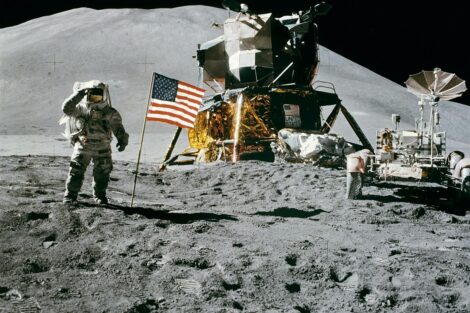
Are you aware what time it’s on the Moon? The Nationwide Aeronautics and House Administration confirmed it is determining the reply with a “lunar time commonplace.”
A White Home memo from April directs NASA to create the Coordinated Lunar Time (LTC) by 2026. In response, the company confirmed it’ll work with “US authorities stakeholders, companions, and worldwide requirements organizations.”
READ: NASA faucets Austin agency to construct Moon homes
Article continues after this commercial
The LTC may also be important for the US’s objective of additional area exploration. Furthermore, it’ll scale the challenge for growing requirements for Mars and different heavenly our bodies.
Why is a lunar time commonplace essential?
Get with the occasions. ⌚
NASA SCaN is working with our companions to determine a lunar time commonplace! Coordinated Lunar Time (LTC) will be sure that @NASA’s long-term presence on the Moon can be secure and sustainable. Extra: https://t.co/yhR3jrCYHE pic.twitter.com/ZL2f1MP2Fw
— NASA House Communications and Navigation (@NASASCaN) September 12, 2024
NASA says a lunar time commonplace will assist astronauts regulate to how time adjustments on the Moon. Albert Einstein’s concept of relativity explains this concern.
It says that point adjustments relying on pace and gravity. Consequently, time strikes barely sooner on the Moon resulting from its weaker gravity.
Article continues after this commercial
An Earth clock on the planet’s celestial neighbor would achieve round 56 microseconds every day. It might appear minuscule, nevertheless it’s sufficient to throw off calculations and jeopardize future area missions.
“For one thing touring on the pace of sunshine, 56 microseconds is sufficient time to journey the gap of roughly 168 soccer fields,” mentioned Cheryl Gramling, lead on lunar place, navigation, timing, and requirements at NASA Headquarters in Washington.
The area company says its House Communications and Navigation (SCaN) program will lead the challenge. SCaN will develop the lunar commonplace time utilizing a weighted common of atomic clocks on the moon.
It’s just like how scientists calculate the Earth’s globally-recognized Coordinated Common Time (UTC). Nonetheless, it’s nonetheless determining which areas are perfect for clock set up.
Quickly, NASA may develop an identical commonplace on the Pink Planet and different celestial our bodies for future exploration.

